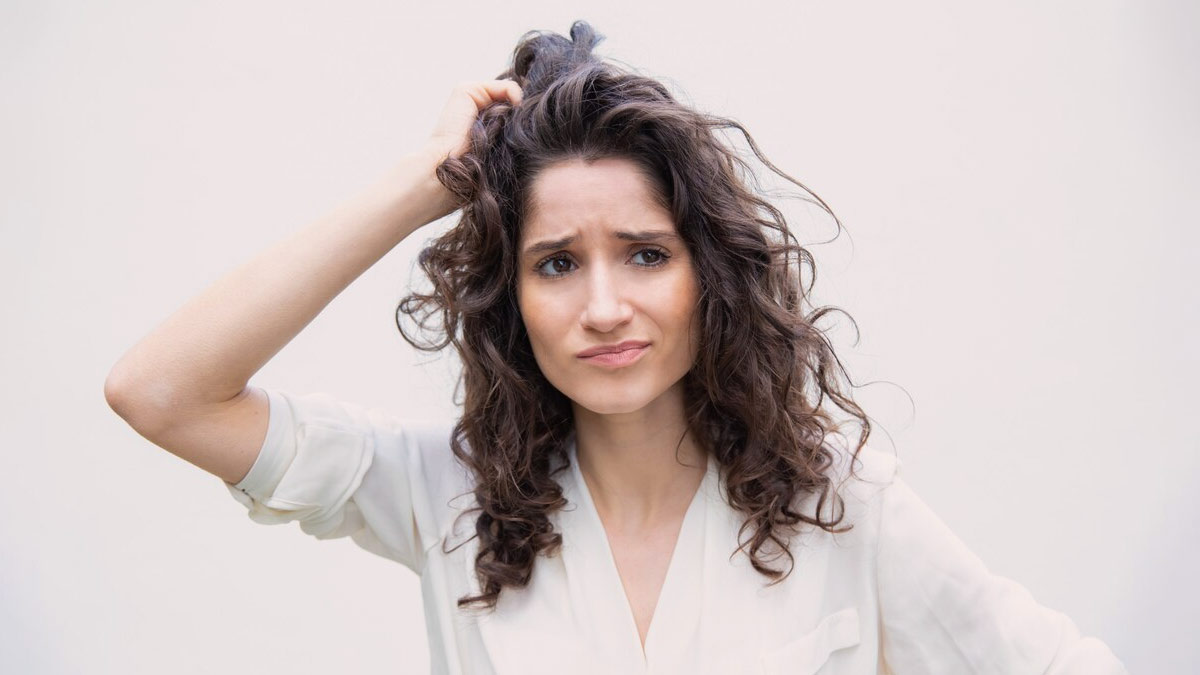
Dry hair can be frustrating, but isn’t greasy hair as annoying? Everyone’s scalp is subject to some amount of oil or sebum production, which is okay because it supports, nourishes, and lubricates hair strands. It keeps your locks shiny and glossier throughout the day. However, when the sebaceous glands in the scalp produce sebum in excess amounts, it can make your hair look sticky and greasy. In some people, this can happen right after hair wash. Dr Monica Chahar, Chief Dermatologist and Director, Skin Decor, New Delhi, explains why and shares tips to prevent it.
Table of Content:-
Also Read: What Early Greying Of Hair Tells About Your Overall Health? Here’s You Need To Know
The Science Behind Greasy Hair

Just like our skin, our scalp also produces sebum, which is a natural oily substance that helps keep both skin and hair nourished. The sebaceous glands are responsible for sebum production, which are regulated by different factors, including hormones, genetics, and other environmental factors.
According to Dr Chahar, an overproduction of oil and sebum can bring about an oily scalp resulting in greasy hair. Besides hormonal imbalances, other common causes of oily hair include:
- Using hair care products that are not suited for oily hair
- People with inherently oily hair, especially straight and silky hair textures have a higher likelihood of persistent greasiness even after washing
- Improper hair habits, such as over conditioning, excessive washing, improper washing techniques
In addition, a study published in the Journal Advances in Dermatology and Allergology has found that dietary choices, particularly high glycaemic foods and dairy products can affect androgen levels, potentially affecting sebum production.
So how do you manage or prevent greasy hair?
Check Your Hair Washing Schedule

According to the expert, if you have greasy hair even after washing, it is essential to check your hair washing schedule.
“If you have the habit of washing your hair every single day, accidently, you may have trained your scalp to be oily,” she explains, adding, “With every wash, we potentially stimulate our sebaceous glands which produce oil to protect the scalp and the more you wash, the more you stimulate it. So, the end result is, greasier, not cleaner hair.”
Additionally, sebaceous glands are also stimulated with temperature extremes. With this in mind, switch to washing your hair every other day and make sure to use warm and not hot water,” the doctor recommends.
Be Gentle
It is important to be gentle with your hair, especially when you’re shampooing your hair. Here is the right way to shampoo your hair:
Step 1: Scrub your hair, but not too hard to irritate your scalp, instead gently rub in the soap.
Step 2: Do not over-stimulate your scalp as it can result in oily hair.
Step 3: Rinse your hair thoroughly to get rid of any leftover shampoo or conditioner as it can leave a layer on your hair making it appear greasy.
Also Read: Frizzy Hair After Hair Wash? Try These Home Remedies To Avoid The Frizz
Use A Clarifying Shampoo
A clarifying shampoo is designed to remove any buildup, excess oil, and impurities from the hair and scalp.
Over time, some products, which are usually applied to clean and style your hair, might leave residues that result in oily or greasy hair.
A clarifying shampoo helps prevent and clean that buildup, as per Dr Chahar. She recommends using it once or twice a month.
Careful Conditioning

A conditioner helps to nourish your hair from getting knotted again. It gives your hair a smooth look and feel. However, while using a conditioner, remember to apply it on your hair’s end, instead of massaging it into your scalp, Dr Chahar advises.
Conclusion
To manage greasy hair, it is not only important to choose the right products, but also know how to use them effectively while making sure you do not over-strip the scalp's natural oils. Additionally, monitor and regulate your hormones and eat nutrient-dense, healthy foods, which equally impact sebum production in your scalps.
Also watch this video
How we keep this article up to date:
We work with experts and keep a close eye on the latest in health and wellness. Whenever there is a new research or helpful information, we update our articles with accurate and useful advice.
Current Version